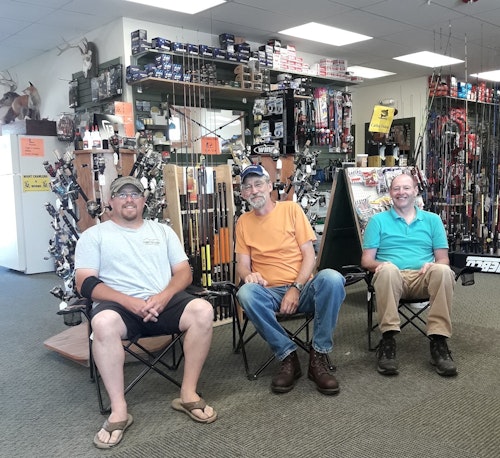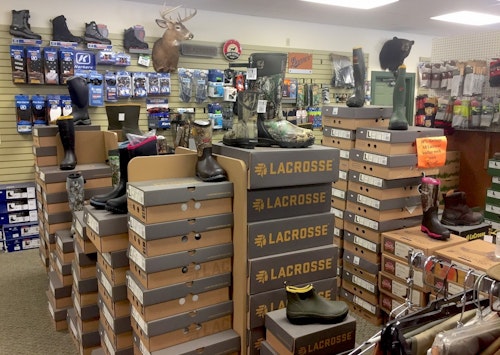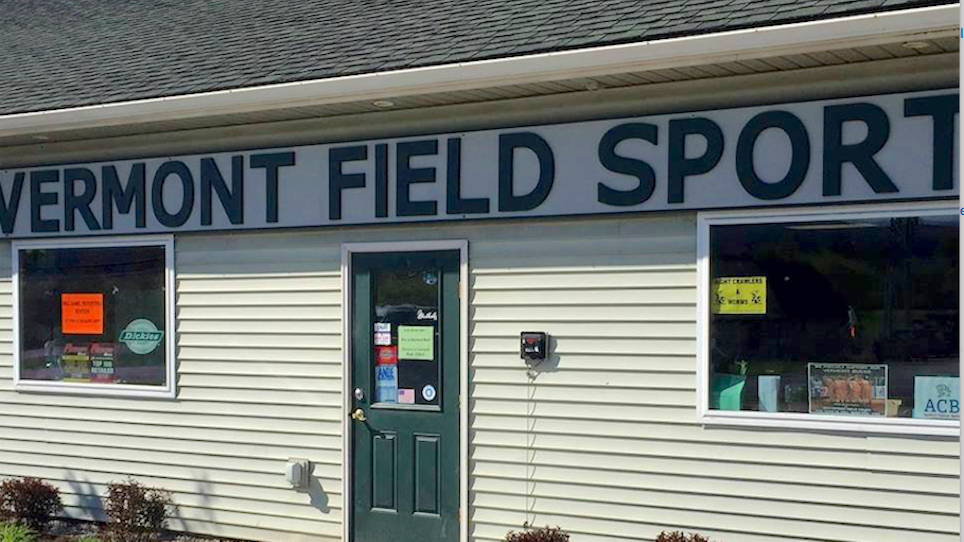Remember the traditional sporting goods stores of yesteryear? A place where the gun counter was at the back of the shop, and there were always a couple of old-timers hanging out, drinking strong coffee. If your memories are like mine, you may conjure up an image of a worn path etched in the wood floor from years of foot traffic or black-and-red checked wool coats hung on make-do coat racks, just under the dusty mount of a decent 8-point whitetail buck.
For a whole host of reasons — some of them economic, some of the societal — few multi-purpose, independent sporting goods stores that cater to a core group of hunters and anglers still exist in the U.S. Across the nation, they’ve been replaced by big box stores or highly specialized retailers who target specific consumers with carefully selected product lines. Obviously, the Internet has altered the landscape too, transforming brick-and-mortar shoppers into click-and-order customers, their buying habits measured in algorithms.
However, in northern New England, in the small town of Middlebury, Vermont, there exists a throwback to the old sporting goods stores of long ago. And despite the big box stores about 30 minutes north, despite being in a college town that’s distinctly flavored by socially liberal politics, despite having a store front that was completely destroyed by an accidental fire a few years ago and despite declining numbers of hunters, Vermont Field Sports is keeping its doors open. In fact, they are thriving.

“This is not the blueprint I would follow if I was starting a business in this field today,” laughed Greg Boglioli, who’s been the manager of Vermont Field Sports since 1997. “We’ve stuck to the model of the old local gun shop and done well with it, but I know it’s really not how you’re supposed to do it here in the 21st century,” he says.
Vermont Field Sports started in 1983 when Dick Phillips — a local police officer in Middlebury — opened up the store as a part-time pursuit. Originally, next to an auto dealership on the southern outskirts of town, it’s moved location by a few hundred yards. Today, the store fills nearly 4,500 square feet of retail space and is staffed by two full-time employees (including Boglioli) and three part-timers.
“It’s one of those stores that remains super important to local hunters,” said Patrick Berry, a Middlebury resident who served as commissioner of the Vermont Fish and Wildlife Department from 2011 to 2014. “It’s the kind of place you run in to get a box of shells, or a new pair of gloves and you end up spending a couple of hours in there swapping stories or getting intel on a new spot to try.”
In the autumn of 2007, lighting struck the building, sparking a fire that burned the store — nearly to the ground. Properly insured, Phillips kept his federal firearms license active until a rebuild was finished and the doors reopened. Not long after the fire, the store was again filled with local shoppers.
“We’re a general hunting store with some fishing products,” said Boglioli. “The majority of our customers are hunting or shooting locally. If you walk in here in the fall, you’re more than likely to hear people swapping hunting stories and bantering about either their failures or their successes. The atmosphere of the old traditional store is still very much alive and I think it’s part of the reason people still want to come in here,” he added.
Patrick Berry, a Middlebury, Vermont resident.It’s the kind of place you run in to get a box of shells, or a new pair of gloves and you end up spending a couple of hours in there swapping stories or getting intel on a new spot to try.”
Another reason Vermont Field Sports continues to thrive is the staff’s ability to embrace the community they are a part of in Middlebury. The store gives back to the surrounding community by handling required FFL paperwork for gun giveaways and sales at local fundraisers for organizations like the National Wild Turkey Federation and Whitetails Unlimited, as well as sponsoring a few local bass fishing clubs. Additionally, the store holds hunting seminars on topics like turkey calling or waterfowl hunting; however, the number of seminars the store now hosts is dwindling.
“You can’t overstate how important local gun shops that walk-the-walk about hunting are to the future of the sport,” said Berry. “We take for granted what we can learn and the products we can buy with a computer in our lap, but it’s places like Vermont Field Sports supporting the hunters they sell to that still provide real value to the hunting culture.”
Boglioli said Vermont Field Sports, with some 500 to 600 guns in their inventory, sells only a few AR-style firearms. The majority of guns sold are shotguns and rifles used for hunting, and handguns used primarily for target practice or hunting.
Understanding your customers’ needs is key to operational practices, especially in a rural setting. “We’re in a college town and a place that has a decent core of dedicated hunters,” Boglioli said. “It’s not like we made a decision to not carry AR-style rifles or to stay away from the so-called ‘black guns,’ it’s just we found that’s not what our customers are all that interested in.”
Boglioli also notes that being in a college town has presented a number of opportunities in the gun business. The vast majority of Middlebury College students are from out of town, and many like to target shoot, but don’t want to bring their equipment from home. Creating niche-specific opportunities such as this helps the retailer increase revenues.

“It’s not unusual for us to sell five or six cases of clay pigeons on a Friday, plus four or five boxes of shotgun shells to college students who want to spend part of their weekends enjoying some target shooting,” Boglioli said. “And there was a movement at the college a few years back that really emphasized the locavore movement and using wild game as a sustainable food source. We sold a bunch of guns and hunting equipment that year to college kids who wanted to hunt for their food. I’m always amazed at some of the trends we see with the college crowd. It’s proven to be a nice little bonus.”
Boglioli is well aware of the shifting culture of retail and said he knows that Vermont Field Sports may someday have to adjust their business plan. Already, he said, the shop sells some guns on gunbroker.com and puts some of its fishing inventory on eBay.
“I can see clearly that our customer base is aging some,” Boglioli said. “It’s probable at some point that we may have to change, but we’re going to keep going about the old-fashioned way for as long as we can.”
BONUS: The Outdoor Retailer Show — Should You or Shouldn’t You?
While Vermont Field Sports in Middlebury, Vermont, still considers itself an old-style, local hook-and-bullet shop, manager Greg Bogliolo ventures to the annual Outdoor Retailer Summer Market trade show each year in search of a few new products he thinks hold value for his store’s customers.
Now held in Denver, Colorado, Outdoor Retailer — more commonly referred to simply as OR — is primarily thought of as the trade show for non-consumptive outdoor activities like camping, climbing and hiking. And while it certainly does not have the pro-gun feel as SHOT Show, held each winter in Las Vegas, there are always plenty of new products debuting at OR that hold considerable interest to hunters.
“I find it’s a good show for me to discover things like ultra-light cook stoves, sleeping bags or other camping accessories our hunters often need,” said Boglioli. “We like to carry a little bit of everything. At OR, I always find a couple of products that really appeal to our customers.”
The 2019 OR Summer Market Show will be held June 17 to 20 in Denver, which is an ideal time for retail employees like Boglioli to get away from the shop. It's well in advance of the busy fall months where a majority of sales are made.
OR puts a high value on the specialty retailers that attend the show, and holds a number of seminars and training programs that apply to all sporting goods shops. Additionally, some of the brands displaying their new products at OR offer incentives to stores that attend the show, including some initiatives that can help offset the cost of attending.
Shops that cater to hunters may want to consider attending OR, both for insight on emerging business practices and as a place to see the latest and greatest products.
For more information, see https://www.outdoorretailer.com/






